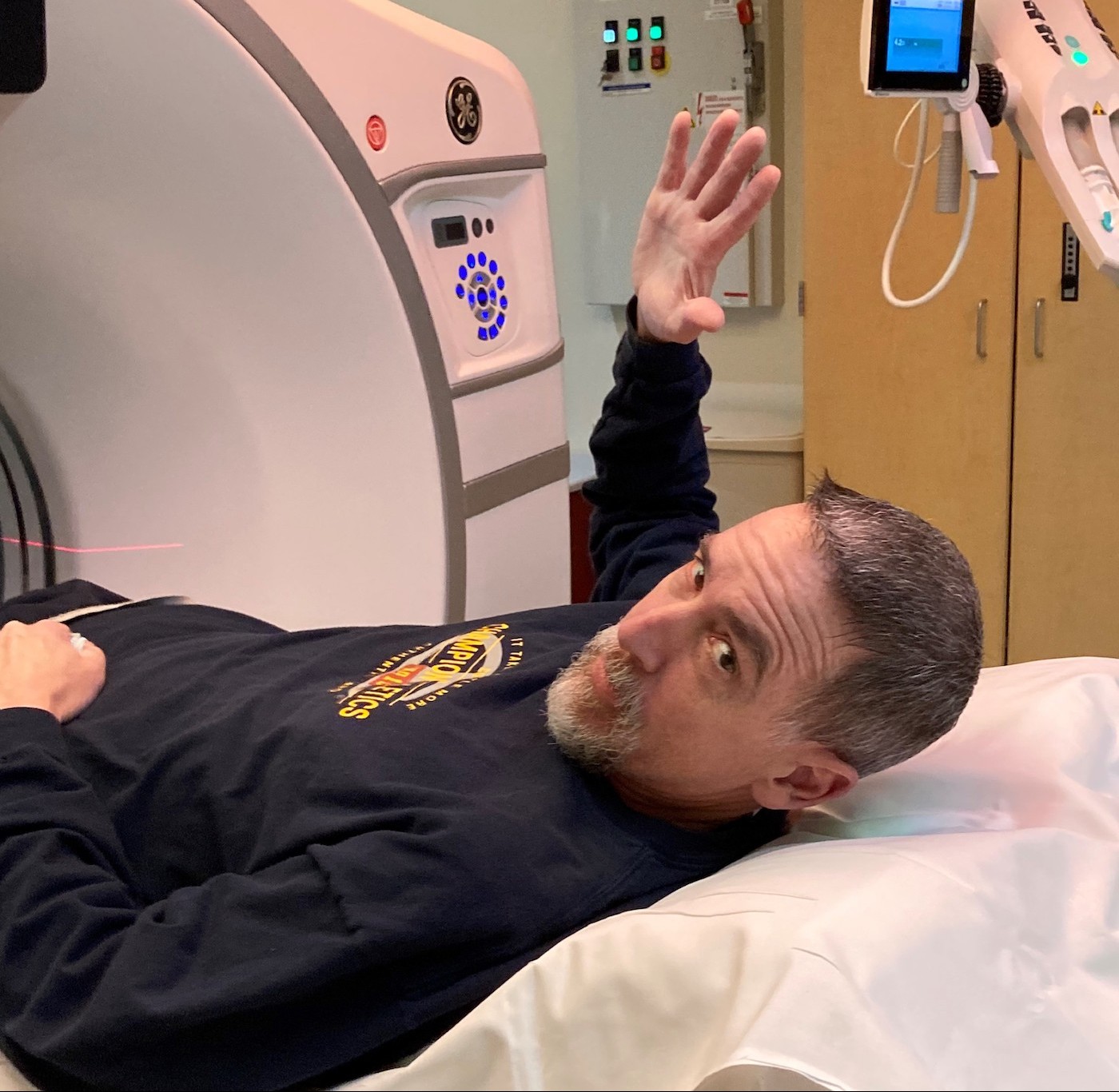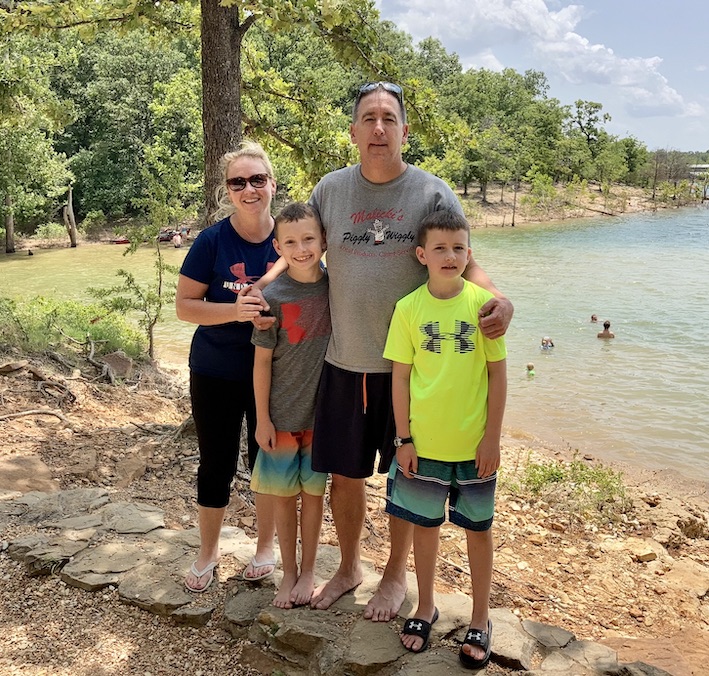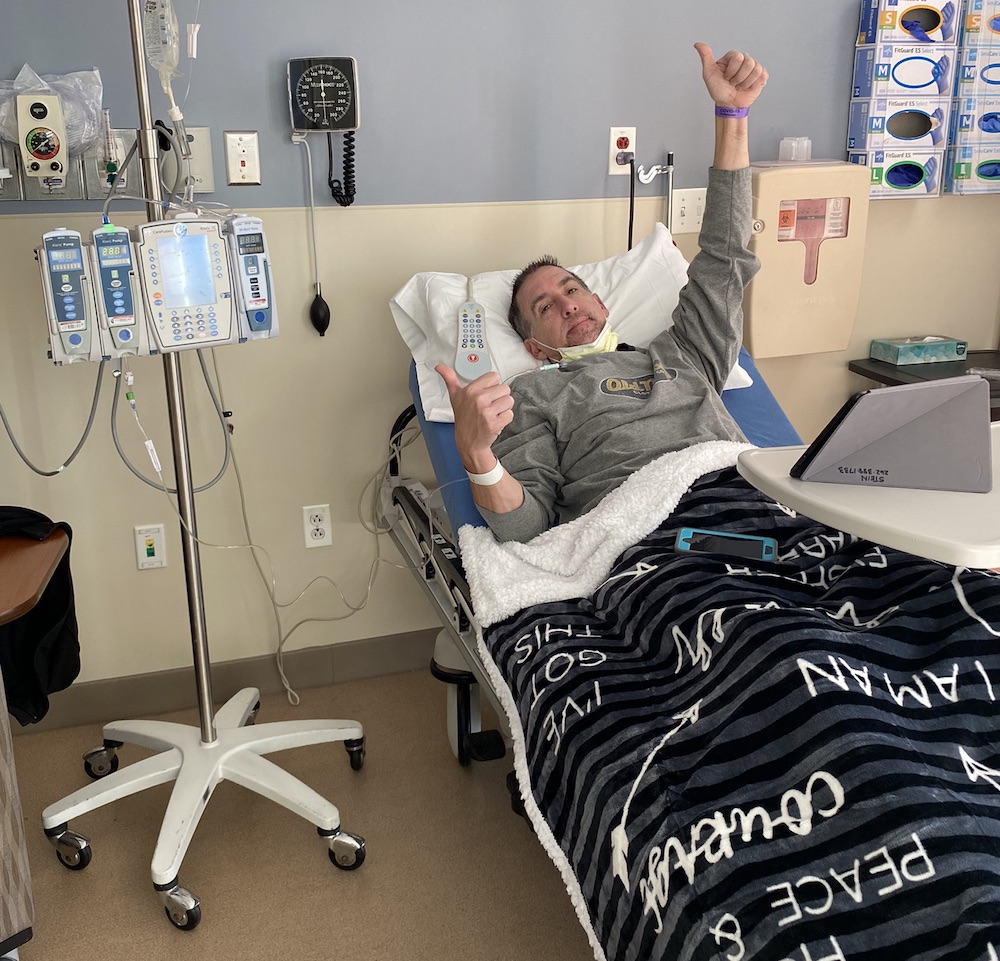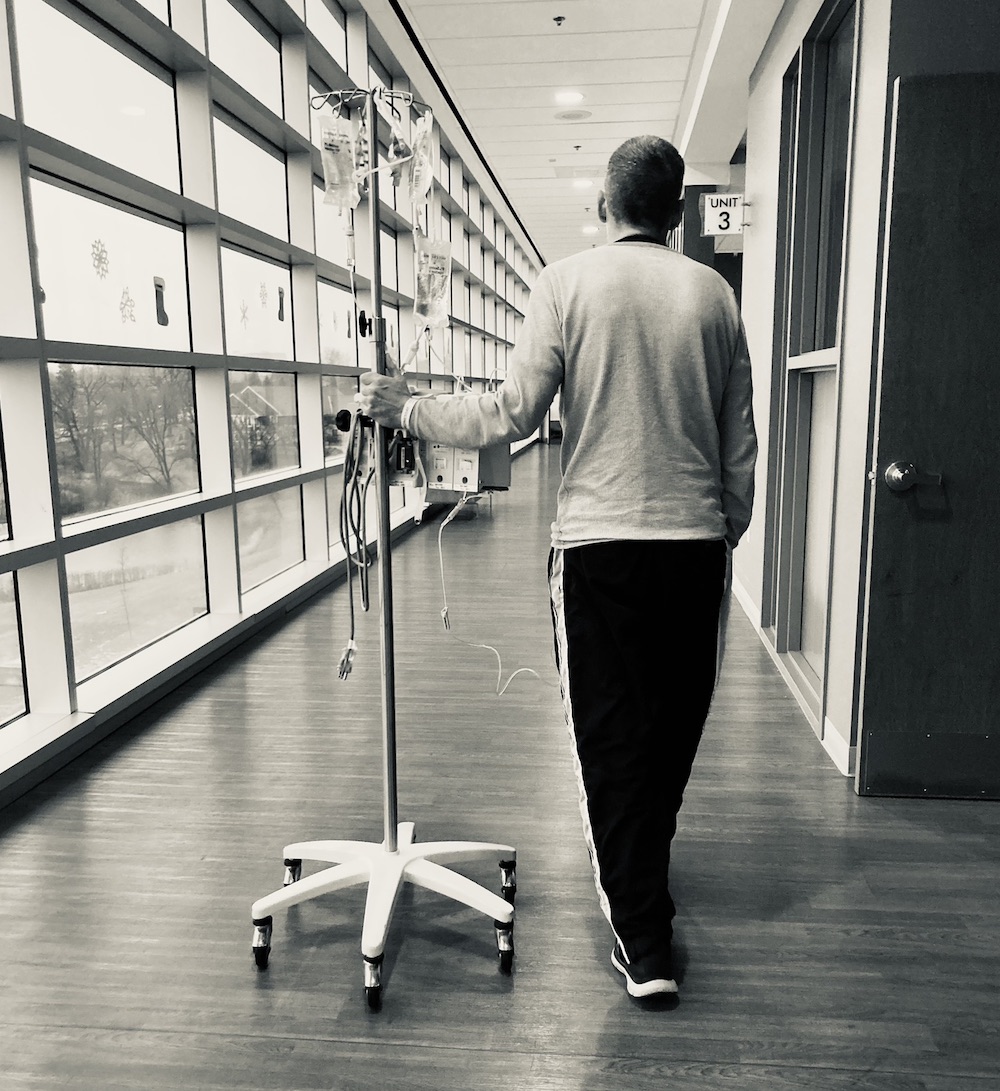A first responder for 28 years, Racine, Wisconsin-based firefighter Lieutenant Andy Stein got a clean bill of health from his routine physical exam through work last September. Soon after, however, he started to rapidly lose weight and felt pangs of nausea. In early November, Stein went to his primary care doctor looking for answers.
Based on symptoms, Stein underwent a CT scan as well as a PET/CT scan. After that, the results of a biopsy revealed that he had locally advanced pancreatic cancer.
Pancreatic cancer is often known as a “hidden” cancer. There’s no universal screening to detect it, and early symptoms like nausea, weight loss, and back pain can sometimes mimic other conditions. The pancreas also sits deep inside the abdomen, which makes it hard to detect tumors.
For the half a million people around the world who find out they have pancreatic cancer each year, reliable, accurate scans are essential to diagnosis and to starting a treatment plan as quickly as possible.
Stein, the brother-in-law of GE HealthCare team member Holly Roloff, and his wife, Merry, say they are grateful for the technology that led them to a quick diagnosis.
“Imaging was huge,” Stein says. “From having signs and symptoms to all of a sudden having a picture gives medical staff direction so they know where they need to focus. That put me on the path toward treatment.”
Since November, Stein has lost 50 pounds while undergoing treatment, which has included five rounds of chemotherapy to date. The hope is that chemo will shrink the tumor on the head of his pancreas to a point that he’s a good candidate for surgery to remove it.
Stein hasn’t returned to the firehouse since November, focusing instead on navigating symptoms and keeping up with his two active sons. Throughout it all, and between his chemo and doctor’s appointments, “scan day” has come to be a critical moment that determines next steps.
A follow-up CT scan in mid-January gave the family critical information about how his treatment has been going. It showed that the cancer had not spread but that the tumor had grown and the blood vessel it attached to was even more encased. This means Stein still isn’t a candidate for surgery, but with this insight, doctors can adjust his treatment plan to better address the disease.
“GE HealthCare imaging has done so much in terms of helping the doctors determine a treatment plan for Andy,” Merry says.
Stein says the technology has already given him and his family a precious gift: more time together. He’s hopeful that treatment will ultimately be successful and that he’ll emerge from the experience stronger. He has his sights set on seeing his boys, Ryan (age 13) and Josh (11), graduate from high school and then college.
“I want to see my kids grow up and become even finer young men than they already are,” Stein says.
Meanwhile, Stein is working to raise awareness for pancreatic cancer so more people know the symptoms — especially among first responders. Stein started his career as a deputy sheriff in the 1990s and then worked as a police officer before moving into firefighting.
Firefighters are at greater risk of getting certain types of cancer than the general public, because of the nature of their work as well as exposure to smoke and toxic chemicals that are emitted from items like upholstery, building materials, and carpets.
According to the International Association of Fire Fighters, cancer accounted for around 75% of line-of-duty deaths in 2022, and occupational cancer is now the leading cause of death among firefighters.
While protocols in place—including the washing of firefighting gear—can help with exposure, they’re not foolproof, Stein says. That, coupled with the fact that Stein’s cancer never showed itself through bloodwork, makes imaging all the more important, he says. He encourages other first responders to see their doctor at the first signs of feeling off.
“Cancer is becoming more and more prevalent in my industry,” Stein says. “Whatever happens to me, I want other people to experience catching their cancer early enough that they can recover and get back to a bit of normalcy with their lives. Imaging is so important for that.”




